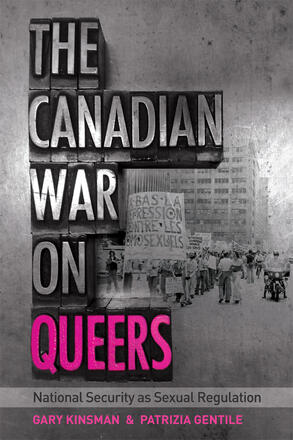
The Canadian War on Queers
National Security as Sexual Regulation
A passionate, personalized account of national security campaigns against gays and lesbians in Canada.
Description
From the 1950s to the late 1990s, agents of the state spied on, interrogated, and harassed gays and lesbians in Canada, employing social ideologies and other practices to construct their targets as threats to society. Based on official security documents and interviews with gays, lesbians, civil servants, and high-ranking officials, this path-breaking book discloses acts of state repression and forms of resistance that raise questions about just whose national security was being protected. Passionate and personalized, this account of how the state used the ideology of national security to wage war on its own people offers ways of understanding, and resisting, contemporary conflicts such as the “war on terror. ”
Reviews
Kinsman and Gentile have taken on an ambitious project both with respect to their topic as well as the scope of more than four decades worth of material. This is an incredibly important piece of work and will be appreciated by those who have a historical interest in national security campaigns and queer history, as well as those who want a history on which to base contemporary resistance to the security campaigns that are still being mounted against many marginalized people today.
- TOPIA, Spring 2011
An important intervention into mainstream studies of Canadian historiography.
- Jack Hixson-Vulpe
This account of the surveillance of Canadian lesbians and gays in the name of national security is impressive, at once bone-chilling and inspiring.
- David Rayside